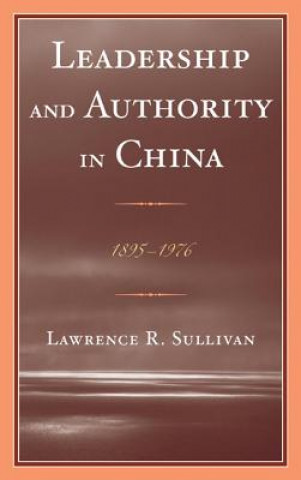
Livrare
Consilier de cumpărături





Nu se pretează? Nu contează! La noi puteți returna bunurile în 30 de zile
 Voucher cadou
orice valoare
Voucher cadou
orice valoare
Cu un voucher cadou nu veți da greș. În schimbul voucherului, destinatarul își poate alege orice din oferta noastră.
Leadership and Authority in China
 engleză
engleză
 221 b
221 b
30 de zile pentru retur bunuri
Ar putea de asemenea, să te intereseze


This volume presents elite conflicts and political controversies in China from 1895 to 1978 as rooted in two diametrically opposed visions of leadership and political authority: a radical, charismatic model that instills absolute authority in the single leader whose "will" guides the polity and whose "word" is the basis of policy formulation, versus an institutional model in which authority inheres in organization and where "collective" leadership and decision-making govern the political realm. The former model in modern Chinese history entailed a "leader principle" and personality cult that began with Sun Yatsen and Chiang Kaishek in the Nationalist Party (KMT) and reached its peak with the leadership cult of Chinese Communist Party (CCP) Chairman Mao Zedong, especially during the 1966-1976 Great Proletarian Cultural Revolution. The latter model with its emphasis on "collective leadership" (jiti lingdao) and "administrative rationalism" began as a reaction among early members of the CCP against the promotion of the Sun and Chiang leadership cults and became a central governing principle in the Communist Party that served as official leadership doctrine beginning with the formation of the Party in 1921. While tensions over leadership issues were relatively muted in the pre-1949 period and early 1950s of CCP history as an apparent "compromise" was reached in which from 1943 onward a cult of the leader was promoted for propaganda purposes but with collegial decision-making governing inner Party decision-making, the mid-to-late 1950s saw this "compromise" among the top leadership come under increasing strain and finally break down. Devoted to a fundamentally different vision of a "socialist" China from other top leaders on a number of economic, social, and political fronts, Mao Zedong pushed his domination of the policy process that ultimately provoked a wholesale assault on the CCP apparatus throughout the country while the leader cult reached mythic proportions during the Cultural Revolution. Confronted by the possibility of civil war and generally opposed to the takeover of the polity by the radical Gang of Four led by his wife Jiang Qing, by the mid-1970s the aging great leader acquiesced to the rebuilding of the CCP along traditional, "institutional" lines.
Informații despre carte
 engleză
engleză




 Cum să cumpăr
Cum să cumpăr



















